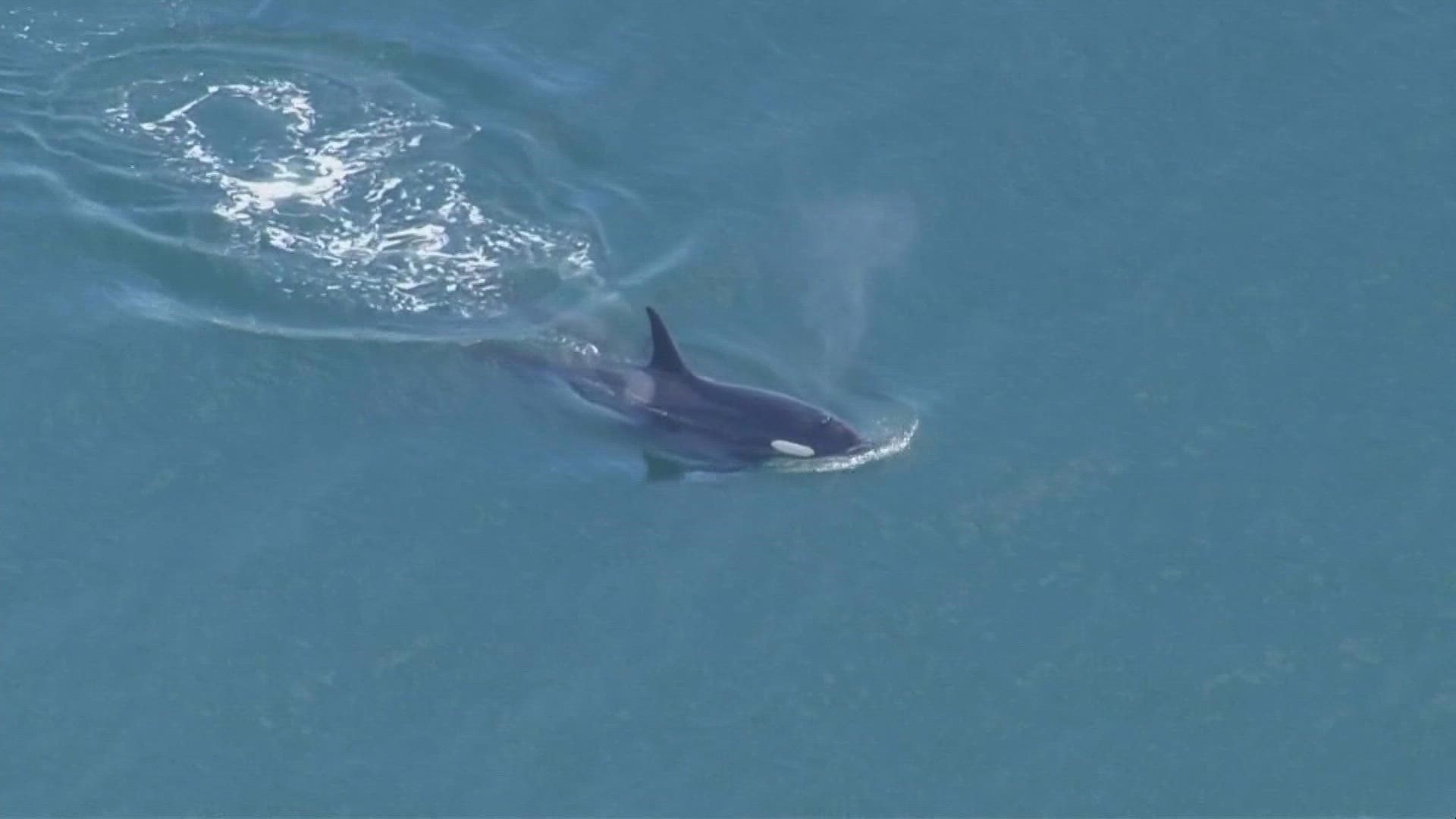SEATTLE — The orca pods are showing off in western Washington this week. Thursday marked four days in a row that a “super pod” of orcas was spotted. It even delayed a couple of ferries between Seattle and Vashon Island.
A super pod happens when the J, K and L Southern Resident orca pods interact. It's been several years since the last time all three pods were seen interacting together, according to the National Oceanic and Atmospheric Administration.
“It’s unusual for them to stay around this many days in a row but it is normal for them to be in central Puget Sound this time of year,” said Dr. David Bain, the Chief Scientist for Orca Conservancy.
Bain said it’s likely because of an increase in food this year.
“I think our waters were a bit cleaner now that we are traveling less with COVID, and that probably improved the salmon survival, and the whales are finding a lot of salmon here right now," Bain said. "Also, that means they can form bigger groups and they can stay in the same place for a longer period of time.”
Bain said another factor is the restoration work being done on local rivers.
“We’ve been doing a lot of restoration work, especially on the Nisqually and Snohomish rivers and the fish may be seeing benefits of that," Bain said. "And as the chum come in the fall to spawn in those rivers, that gives the whales incentive to come back.”
This week, the super pod of orcas was spotted from Seattle’s Elliott Bay to farther south between Vashon Island and Des Moines.
Bain said historically, we might see the super pod one day a winter but then normally don’t see the super pods again until the summer.
“In recent years, our summer population has been declining and the super pods have gotten a lot rarer over the years,” he said.
Bain said one reason we’re seeing them less in the summer seems to be tied to the decline in salmon runs in the Fraser River.
“Historically, the Fraser River, which flows through Vancouver, has been a very big salmon river and Southern Residents came in over the summer to feed on the salmon returning there, so we’d see them up in the San Juans a lot. And as that run has been declining, we see the whales coming in during the summer a lot less,” Bain said.

